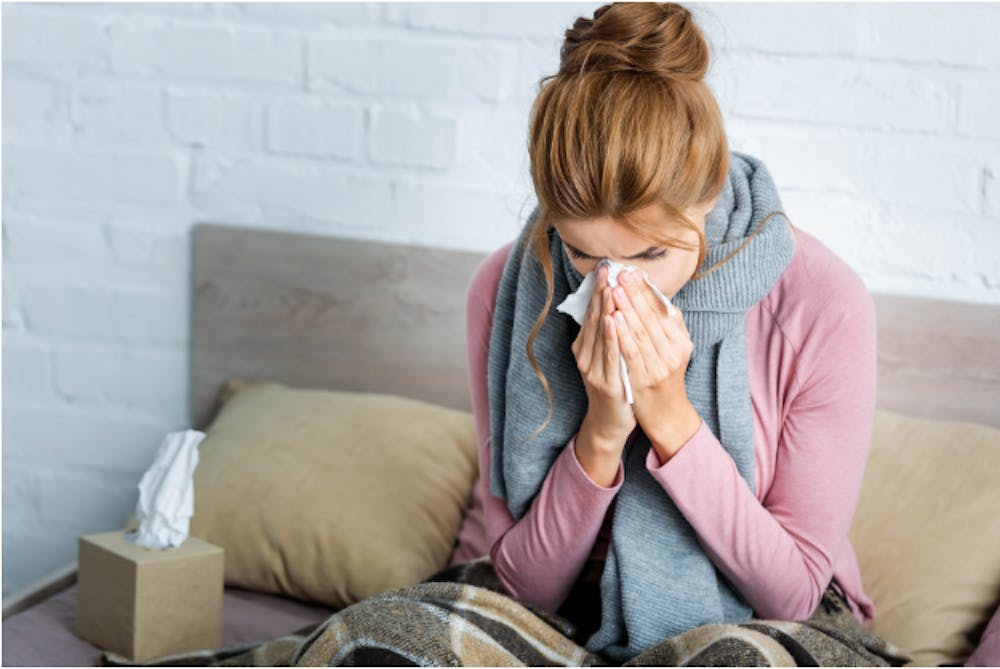Ah, cold and flu season. It's that time of year again! The dreaded coughs, sneezes, chills, and headaches all make their way back into our lives with the changing of the seasons. For most people, this is an experience that they would rather avoid altogether.
Colds and flus are both caused by viruses that spread through the air when an infected person sneezes, coughs, or even talks. The virus can then be inhaled by another person or transferred from surfaces such as doorknobs or countertops.
Few things are worse than being stuck indoors while feeling lousy, unable to do anything other than try to get better. Unfortunately, colds and flus will still be around even if we don't want them to be!
Knowing some facts about how colds and flus work can help us understand why they happen in certain seasons and learn how to prepare for when they strike so we can feel better sooner. Let's take a closer look at colds and flu to learn more.
What Is Cold and Flu Season?
Cold and flu season can be a real drag—no one likes to deal with it, but you’re more likely to encounter it during certain times of the year. That’s right—cold and flu season is here!
Cold and flu season usually begins in late fall or early winter when the temperature starts to drop. It lasts until spring, when the weather warms up again. During this time, viral respiratory infections become more common due to people being cooped up indoors with an abundance of germs floating around.
Not only do cold and flu viruses spread easier in colder temperatures, but they also have better survival rates since there are fewer natural ways for them to be killed off by sunlight or increased humidity.
Stay Hydrated
It's cold and flu season, and the best way to stay healthy is to ensure you're hydrated. Many people don't drink enough water throughout the day, especially during cold and flu season, when we often feel too drained or busy to pay much attention to our own health.
If you want your immune system running at its peak performance, always have a bottle of water with you! You can also take it one step further by getting an IV therapy treatment.
It's like getting a shot of vitamins straight into your bloodstream—not only will it help restore much-needed fluids, but it will also give your body a direct boost of vitamins and minerals.
If you want to make sure your immune system is running at its peak performance, consider IV therapy treatments. They could be just the thing to help you make it through cold and flu season in tip-top shape.
Get Plenty of Rest
It's cold and flu season, which means it's more important than ever to get plenty of rest. A good night's sleep will help boost your immune system and can give you the energy you need to get through the day.
Plus, with all the stress that comes along with cold and flu season, getting some extra ZZZs can be a great way to relax and recharge. Getting enough rest is one of the easiest ways to fend off illness during this time of year.
Exercise Regularly
Exercising regularly can help you through cold and flu season like a champion! When you exercise, your body releases endorphins that boost your mood and immune system. This makes it easier for your body to fight off germs and illnesses.
As an added bonus, regular exercise also helps reduce stress—which is key for keeping sickness away during the winter months. Other benefits of exercising include improved sleep quality and increased energy levels throughout the day.
So why not get up and get moving? You’ll be glad you did when you’re feeling fit and energetic while everyone else is sniffling with a cold or feeling extra sluggish in the colder months.
Don’t Forget to Wash, Wash, Wash Your Hands
Last but not least, frequently washing your hands is essential to getting through cold and flu season. By washing away potentially harmful germs, you can reduce your risk of getting sick and keep your immune system strong. So stay healthy this winter—lather up and scrub those hands!


